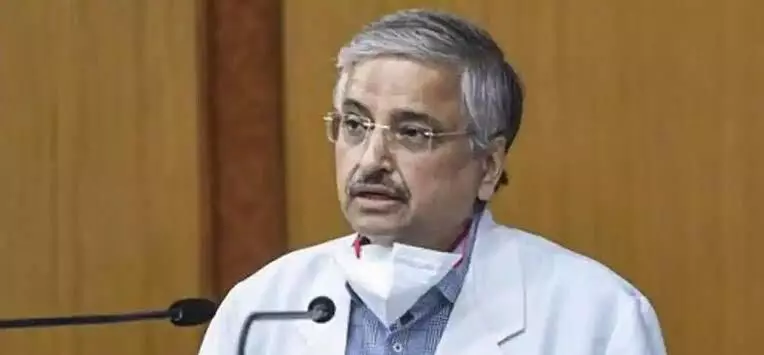
AIIMS Chief recommends lockdown to arrest 2nd COVID wave
text_fieldsNew Delhi: Top experts in the national COVID-19 task force and other health officials are now recommending that a rigorous national lockdown seems to be the only way to curb the spread of the devastating second wave of coronavirus in the country.
According to an exclusive report by the NDTV, AIIMS chief Dr Randeep Guleria said that India's health infrastructure is "stretched to the limit" and "aggressive lockdowns" - like the one imposed in March last year - in areas with positivity rates over 10 per cent are needed to contain the second COVID-19 wave.
Dr Guleria said the country had been caught "off guard" by the ferocity with which the virus was spreading, and that night curfews and weekend lockdowns - such as those enforced by Uttar Pradesh, Maharashtra, Haryana and other states - were proving to be ineffectual.
"Why is this happening? Because of the continuously increasing number of cases... we have to work aggressively to bring this number down. No healthcare system in the world can manage this kind of load. The issue of aggressive containment or lockdown, or whatever, is key," he stressed.
This is the second time Dr Guleria has called for strict lockdowns in high positivity areas.
"We felt confident because vaccines were coming, and cases were falling... thought Covid won't be a problem. So, a lot of people ignored Covid behaviour... and did not really factor in the infectiousness of the new strains, that it could mutate and spread like wildfire in our population," he explained.
Dr Guleria also pointed out the fallacy in hoping for 'herd immunity, saying, "We have this feeling of 'herd immunity without realising that if the virus changes that immunity is not of much use."
The flood of new cases every day, he said, meant hospitals had less time to turnaround beds so new patients could be admitted, and doctors had less time to treat every patient.
On the oxygen crisis in Delhi, he called for a "central command" that would coordinate supply and ensure a backup, so even if there was a delay people's lives could be saved.
And on the current wave peaking over the next few days and weeks, Dr Guleria said he expected peaks to vary from region to region, pointing to the apparent levelling off in Maharashtra and Delhi.
He also expressed concern over a possible surge in cases in the eastern part of India, where Bengal continues to record a large number of daily cases; the state, which voted for a new government over eight contentious phases starting March 27, has over 1.13 lakh active cases.























